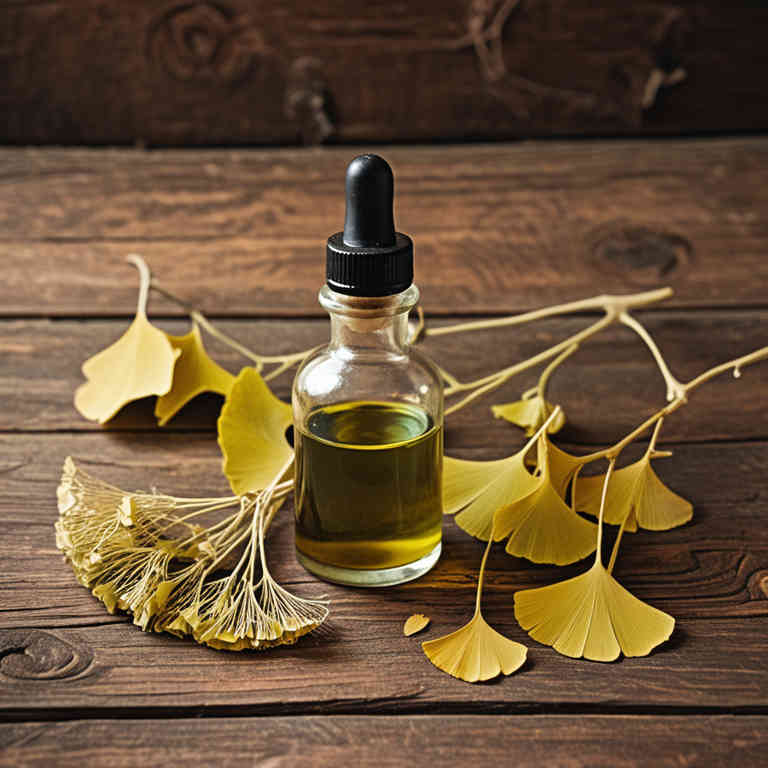Ginkgo biloba tincture for medicinal use

Ginkgo biloba tincture is a concentrated liquid extract made from the leaves of the Ginkgo biloba tree, which is known for its medicinal properties.
It is commonly used in herbalism to support cognitive function, enhance memory, and improve blood circulation. The tincture is prepared by soaking the dried leaves in alcohol to extract their active compounds. It is often taken orally in small doses to address conditions like dementia, attention deficit disorder, and circulatory issues.
Herbalists recommend it for its antioxidant and anti-inflammatory benefits.
Uses
Ginkgo biloba tincture has been used to enhance cognitive function and improve blood circulation for centuries.
Historically, the Ginkgo biloba tree, often called the "living fossil," was revered in ancient Chinese medicine for its ability to support mental clarity and memory. Traditional uses included treating respiratory conditions, headaches, and circulatory issues, with the leaves being dried and processed into various remedies. In modern times, the tincture is widely used as a supplement to support memory, concentration, and overall brain health, particularly in older adults.
It is also believed to promote better blood flow, making it a popular choice in contemporary herbal medicine for its potential neuroprotective properties.
Benefits
Ginkgo biloba tincture has health benefits such as improving cognitive function, enhancing memory, and promoting blood circulation.
It is commonly used to support brain health and may help in treating conditions like dementia and Alzheimer's disease. The tincture contains bioactive compounds like flavonoids and terpenoids, which have antioxidant and anti-inflammatory properties. It is also believed to enhance mental clarity and reduce symptoms of anxiety and depression.
Due to its potential therapeutic effects, it is often used as a natural supplement for overall well-being.
Constituents
Ginkgo biloba tincture active constituents include flavonoids and terpene lactones, which are responsible for its medicinal properties.
These compounds act as powerful antioxidants, helping to neutralize free radicals in the body. Flavonoids may improve blood flow by strengthening blood vessel walls and enhancing circulation. Terpene lactones are believed to support cognitive function by increasing blood flow to the brain.
Together, these constituents are used to promote memory, enhance mental clarity, and support overall cardiovascular health.
Preparation
To make Ginkgo biloba tincture, begin by gathering fresh or dried Ginkgo biloba leaves, ensuring they are clean and free from pesticides.
Next, place the leaves in a clean glass jar and cover them completely with a high-proof alcohol such as vodka or grain alcohol. Seal the jar and let it sit in a dark, cool place for 4 to 6 weeks, shaking it occasionally to ensure even extraction. After the steeping period, strain the liquid through a fine mesh strainer or cheesecloth to remove the plant material.
Finally, transfer the tincture to a dark glass bottle and store it in a cool, dry place, away from direct sunlight.
Side Effects
Ginkgo biloba tincture may lead to gastrointestinal discomfort, headaches, and allergic reactions in some individuals.
It is derived from the leaves of the Ginkgo biloba tree and is commonly used to improve memory and circulation. The tincture contains bioactive compounds such as flavonoids and terpene lactones, which are believed to contribute to its cognitive benefits. Possible side effects include dizziness, nosebleeds, and interactions with blood-thinning medications.
Individuals with seizure disorders or those taking anticoagulants should consult a healthcare provider before use.